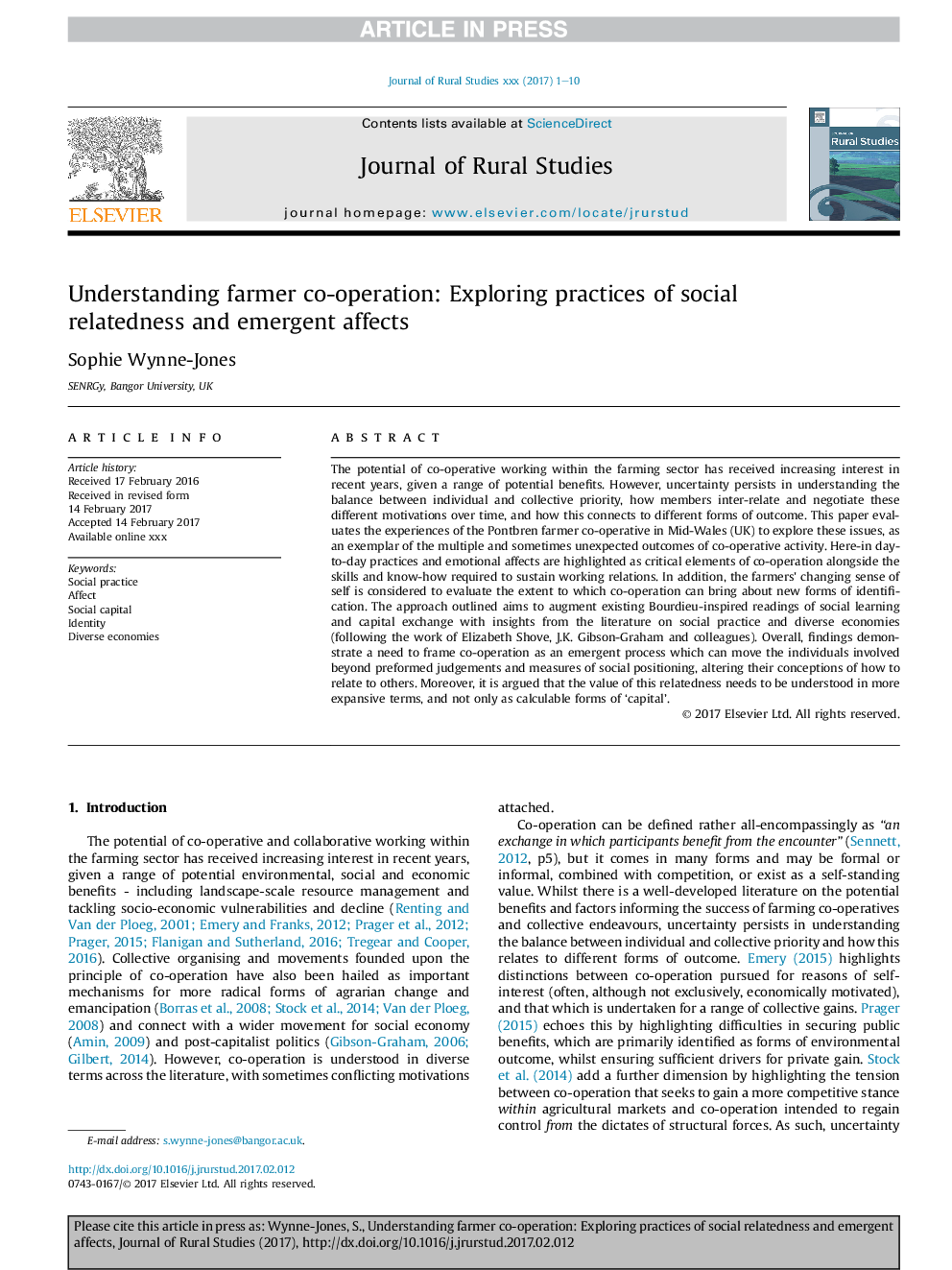ترجمه فارسی عنوان مقاله
درک همکاری کشاورزان: بررسی شیوه های مرتبط بودن اجتماعی و تأثیرات ناشی از آن
عنوان انگلیسی
Understanding farmer co-operation: Exploring practices of social relatedness and emergent affects
| کد مقاله | سال انتشار | تعداد صفحات مقاله انگلیسی |
|---|---|---|
| 155725 | 2017 | 10 صفحه PDF |
منبع

Publisher : Elsevier - Science Direct (الزویر - ساینس دایرکت)
Journal : Journal of Rural Studies, Volume 53, July 2017, Pages 259-268
ترجمه کلمات کلیدی
تمرین اجتماعی، تاثیر می گذارد، سرمایه اجتماعی، هویت، اقتصادهای متنوع،
کلمات کلیدی انگلیسی
Social practice; Affect; Social capital; Identity; Diverse economies;

